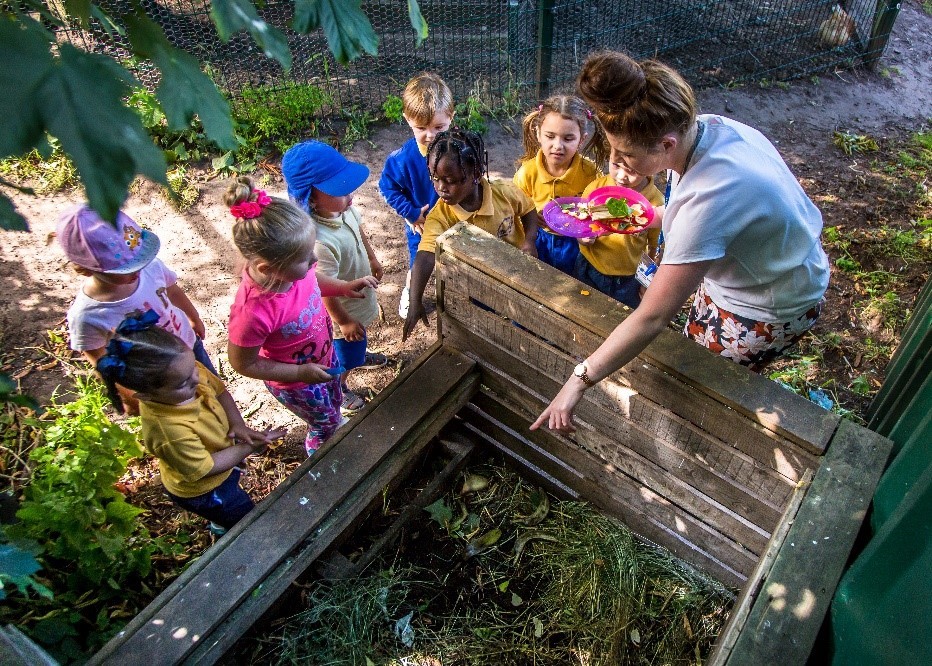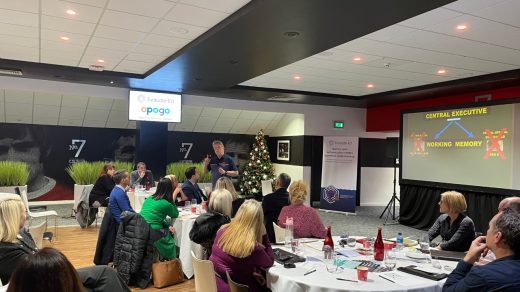Everton Nursery School pioneers new initiative to empower young minds

A SHINE-backed initiative has been launched to improve the communication and language skills of 484 young children in Liverpool across 11 early years settings.
Everton Nursery School is tackling the pressing issue of language and communication development in young children, particularly those from disadvantaged backgrounds.
The school is a teaching school hub in Liverpool, the second most deprived local authority in the country. One in three children in Liverpool lives in poverty, compared to one in five nationally.
Even before the pandemic, children often started nursery at 36 months old but with a development age of 16-26 months, posing a challenge for the Private, Voluntary, and Independent (PVI) sector, who often lack resources and access to training.
Everton Nursery School is rolling out the project “Coaching Early Conversations Interaction and Language” (CECIL), with the backing of both SHINE and the Sutton Trust, a national charity which champions social mobility.
Dr Lesley Curtis OBE, head of Everton Nursery School, emphasised the significance of this project in raising the profile of children under five and addressing the lack of investment in their development compared to primary and secondary education.
She said: “If we prioritise quality investment in the workforce for young children, we can prevent the issues we currently face in primary and secondary schools and ensure a brighter future for our children.
“The aim is to address early language and communication inequality in disadvantaged communities by supporting high-quality practice within early years settings.”
The CECIL programme is based on three key principles and offers a solution to potentially transform the early years sector in Liverpool and beyond:
1. The first principle emphasises the importance of early-years practitioners in transforming early language and aims to embed high-quality practice within early years setting through continuing professional development (CPD).
2. The second key point is a coaching model where staff in early years settings receive ongoing and personalised support from experienced practitioners to test, reflect, and embed strategies into their practice.
This coaching model includes a professional growth record to track educators’ progress and identify areas for further support, enabling mentors to tailor coaching to individual needs and provide guidance for growth and development.
3. The third principle highlights the need for sustained support beyond initial training and coaching to ensure high-quality implementation, as intensive training alone may not suffice. The CECIL model in Liverpool enables skilled early years teachers to provide coaching and mentoring to their peers in the sector for the greatest impact.
Laura Barbour from the Sutton Trust, a CECIL developer, said: “I think it’s important to note that settings have different priorities and starting points, with some serving a high proportion of children who speak English as an Additional Language (EAL), and others have children struggling with language development for a variety of other reasons.
“A tailored method of support can have a greater impact than a one-size-fits-all approach.”
Reflecting on the funding from SHINE, Laura added: “I think one of the most important things that SHINE’s funding has enabled us to do is have a regional focus in Liverpool. It’s really concentrated on the importance of the context, local delivery, and what the families are like in that particular area.
“Whilst it is important to build on the evidence base from academic research, this funding lets us really hone in on the implementation which is arguably the most vital. Without the people delivering on the ground, the research means nothing.”
Dr Lesley Curtis said: “We believe that confident educators are key to creating a high-quality workforce, which is essential for children, especially those in disadvantaged areas. Our project is well underway, and we are already gaining valuable insights into what works well and what needs improvement.”
If CECIL proves successful, it could be scaled across the UK.
Everton Nursery School is excited to be at the forefront of this initiative and looks forward to transforming early language development in its community and beyond.





